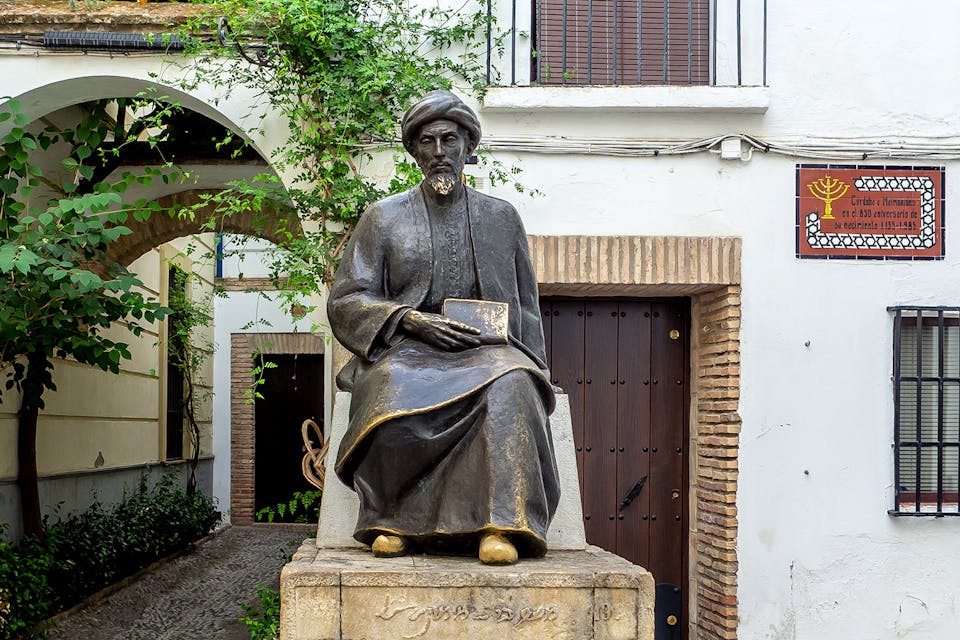
June 10, 2020
How to Situate Maimonides: An Exchange
To where and what language does the great Jewish philosopher and his name belong?
Last month we published a column by Arnold E. Franklin puzzling over the mystery of Maimonides’ name. Franklin, a professor of medieval religion, attracted such interesting comment from Lawrence Kaplan, himself an eminent scholar of Maimonides, that we decided to publish Kaplan’s comment, along with a final word from Franklin.—The Editors
Arnold Franklin’s intriguing essay “The Mystery of Maimonides’ Puzzling Name” calls our attention to the strange fact that the great medieval sage’s father, Rabbi “Maimon” or “Maymun,” seems to have lacked a Hebrew name. The essay reconstructs the evidence and proposes a name. And in speculating on why the mystery has lingered over these last many years, Franklin notes a reluctance to “situate Maimonides fully within the Arabic-Islamic milieu in which his entire life was lived.” But reading Franklin’s essay, I have come to think that it is he who does not adequately situate Maimonides, who was born in Cordoba and died in Egypt, in his proper milieu.
Let’s review Franklin’s central arguments. He begins by calling our attention to the colophon—that is, the concluding inscription—of a late 15th-century Judeo-Arabic manuscript of Maimonides’ philosophical masterpiece the Guide of the Perplexed. The manuscript is housed in Oxford’s Bodleian library, and it is referred to by its catalogue classification as MS Pococke 68. Franklin explains that the colophon “had been hiding in plain sight” for over a century, ever since the German scholar Adolf Neubauer reproduced and commented on the manuscript in 1886. MS Pococke 68 itself is dated to the year 1488, and the scribe who wrote it identifies Maimonides as “our Master Moses, the great master, the light of the world and its wonder, . . . the son of our master, Isaac, known as Maymun.” So, if we accept the reliability of this attribution, the mystery is solved: The Hebrew name of Maimonides’ father was Yitzḥak (Isaac).